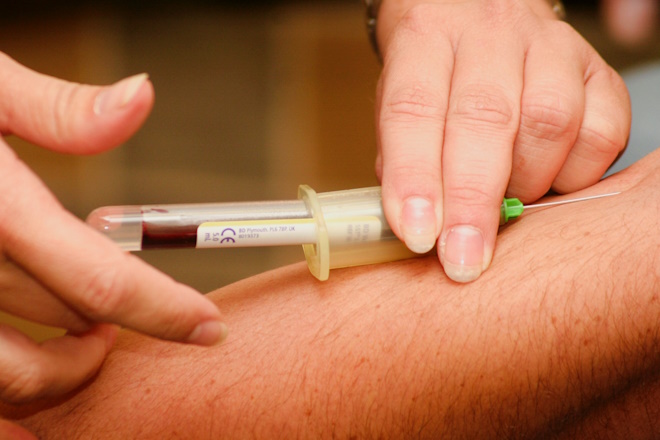
Health x Wellness
Hypothyroidism vs Hyperthyroidism: Knowing the Difference
The butterfly-shaped organ around the windpipe, the thyroid is part of the endocrine system and secretes hormones that control many important bodily processes.
According to estimates, 5 to 10 percent of Singapore’s population has thyroid disorders. One of the thyroid’s most important functions is perhaps regulating metabolism or the rate at which the body transforms food into energy.
The hormones released by the organ also figure into immediate activities that are essential to life, such as how fast the heart beats and how deeply one breathes, and ongoing developments such as one’s long-term growth.
Given the thyroid’s functions, it’s clear that, if left untreated, disorders that affect this organ can have a significant impact on one’s health and quality of life.
Hyperthyroidism and Hypothyroidism: Common Thyroid Disorders in a Nutshell
Hyperthyroidism and hypothyroidism are common thyroid disorders.
Hyperthyroidism refers to the over activity of the organ, which means that the thyroid produces an excess of the hormones that it typically makes. Should non-invasive management options fail to work, the treatment for this condition can include thyroid removal surgery.
Hypothyroidism, on the other hand, refers to thyroid underactivity, which means that the hormones the organ secretes are not sufficient to meet the bodily functions it supports. Here’s a comparison of these common thyroid issues:
Symptoms of Hyperthyroidism and Hypothyroidism
Hyperthyroidism is characterised by a range of symptoms that reflect an overactive thyroid gland. Individuals with this condition often experience unexplained weight loss despite increased appetite, rapid heartbeat, and feelings of restlessness and anxiety.
Excessive sweating, even in cool environments, can be a noticeable symptom, as can trembling hands and fingers. Heat intolerance is also a common complaint, as people with the condition can easily feel discomfort in warm weather. Insomnia may accompany these symptoms, making it a challenge to get restorative sleep. The increased metabolic rate associated with hyperthyroidism can also lead to frequent bowel movements and diarrhoea.
Hypothyroidism, in contrast, has symptoms that reflect an underactive thyroid gland. The hallmark of hypothyroidism is persistent fatigue and sluggishness, which often makes everyday tasks feel more strenuous than usual. This can be accompanied by unexplained weight gain, intolerance to cold, recurring constipation, and muscle aches and weakness.
Changes in mood, including depression and mood swings, are also common to people with hypothyroidism. The condition can also manifest in the form of dry skin, brittle nails, and hair loss. Elevated cholesterol levels are another potential symptom, which can make people with hypothyroidism at risk for cardiovascular issues.
Causes and risk factors
Among the most prevalent causes of hyperthyroidism is Graves’ disease, an autoimmune disorder where the immune system stimulates the thyroid to overproduce hormones. Thyroid nodules or goitre, which are abnormal growths on the thyroid, can also independently produce excess thyroid hormones. Likewise, it’s possible to have temporary hyperthyroidism when one has thyroiditis or the inflammation of the thyroid. This is due to the fact that an inflamed gland releases stored hormones. Excessive iodine intake, often through supplements or medications, can also disrupt thyroid function. The risk of hyperthyroidism increases if the condition runs in the family.
Hypothyroidism often arises from autoimmune thyroiditis. The condition where the immune system mistakenly targets and damages the thyroid gland is known as Hashimoto’s disease. Additionally, thyroid surgery or radiation therapy can lead to decreased thyroid function. Certain medications, such as lithium and amiodarone, may also interfere with thyroid hormone production. While rare in developed countries, iodine deficiency can contribute to hypothyroidism, although this condition is typically addressed through dietary iodine supplementation.
Testing for Thyroid disorders

Diagnosing thyroid disorders, whether hypothyroidism or hyperthyroidism, often begins with a common set of blood tests, collectively known as Thyroid Function Tests. These tests provide crucial insights into thyroid hormone levels and the functionality of the thyroid gland. TFT typically consist of measuring three key parameters: TSH (Thyroid-Stimulating Hormone), which is produced by the pituitary gland, and T3 (Triiodothyronine) and T4 (Thyroxine), which are the main thyroid hormones produced by the thyroid gland.
Hyperthyroidism leads to low TSH levels, indicating excessive thyroid hormone production, and elevated T3 and T4 levels, signifying an overactive thyroid gland. In contrast, in hypothyroidism, TSH levels are elevated as the body attempts to stimulate the underactive thyroid, while T3 and T4 levels are typically low. Interpreting these results is central to distinguishing between the two thyroid disorders, guiding healthcare providers in their diagnosis and treatment decisions.
Management and treatment of of Hyperthyroidism and Hypothyroidism
Hyperthyroidism is typically managed through various methods aimed at reducing excessive thyroid hormone production and alleviating symptoms. Anti-thyroid medications, such as methimazole and propylthiouracil (PTU), are often prescribed to inhibit the thyroid’s hormone production.
Another option is radioactive iodine therapy (RAI), where patients ingest or receive a radioactive iodine dose. This leads to a gradual reduction in thyroid hormone levels. In severe cases or when nodules are present, surgical removal of part or all of the thyroid gland (thyroidectomy) may be necessary. However, thyroidectomy can result in hypothyroidism, necessitating lifelong thyroid hormone replacement.
Meanwhile, the primary approach to treating hypothyroidism involves replacing the deficient hormone with synthetic hormone medications. Taking levothyroxine, a synthetic form of T4, is the standard treatment. The goal here is to provide the body with the thyroid hormone it lacks, which can then restore normal metabolic function. The dosage of levothyroxine is adjusted based on regular monitoring of thyroid function so as to ensure that thyroid hormone levels remain within the optimal range. Lifelong medication and ongoing monitoring are essential to effectively manage hypothyroidism, ensuring that individuals can lead healthy and symptom-free lives.
It’s crucial to remain attuned with your body so you can determine whether or not a common thyroid condition is holding you back from being the best version of yourself.
By staying informed, seeking medical evaluation when needed, and adhering to treatment plans, you can certainly take proactive steps towards protecting your own well-being and long-term health.
With early detection and proper management, it’s possible for individuals who have thyroid disorders to lead vibrant, healthy lives.
Photo by Hush Naidoo Jade Photography on Unsplash






